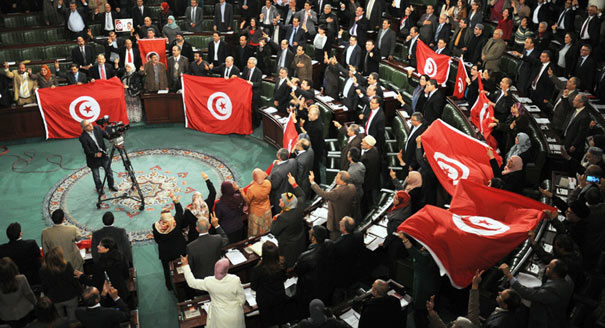Registration
You will receive an email confirming your registration.
Tunisia’s first ever democratic local elections in May were a crucial step in the country’s efforts to devolve power from the national to the local level. In their latest paper, Decentralization in Tunisia: Empowering Towns, Engaging People, Sarah Yerkes and Marwan Muasher argued that if done right, decentralization will both empower local actors and introduce a new political class outside of the country’s traditionally dominant political parties. Successful decentralization requires strong political will from central government officials, who must demonstrate their commitment to participatory local governance both on paper and in practice, and from local officials who must build trust with their constituents, provide opportunities for citizen engagement, and prevent the recreation of ineffective institutions at the local level.
Agenda
10:00 a.m.
Welcome
Marwan Muasher
10:05 to 10:45 a.m.
Keynote Decentralization and Local Governance
Thomas Carothers
Moderator: P.J. Tobia
10:50 to 12:15 p.m.
Decentralization in Tunisia: Empowering Towns, Engaging People
Laura J. Hagg, Intissar Kherigi, Sarah Yerkes
Moderator: Marwan Muasher
12:15 p.m.
Lunch
Speakers
Marwan Muasher
Marwan Muasher is vice president for studies at the Carnegie Endowment for International Peace, where he oversees research in Washington and Beirut on the Middle East.
Thomas Carothers
Thomas Carothers is senior vice president for studies at the Carnegie Endowment for International Peace.
P.J. Tobia
P.J. Tobia is a foreign affairs producer at PBS NewsHour, covering the Middle East and North Africa.
Laura J. Hagg
Laura J. Hagg is an independent consultant on local and international governance.
Intissar Kherigi
Intissar Kherigi is the programmes director at the Jasmine Foundation and a researcher at Sciences Po Paris.
Sarah Yerkes
Sarah Yerkes is a fellow in Carnegie’s Middle East Program.
